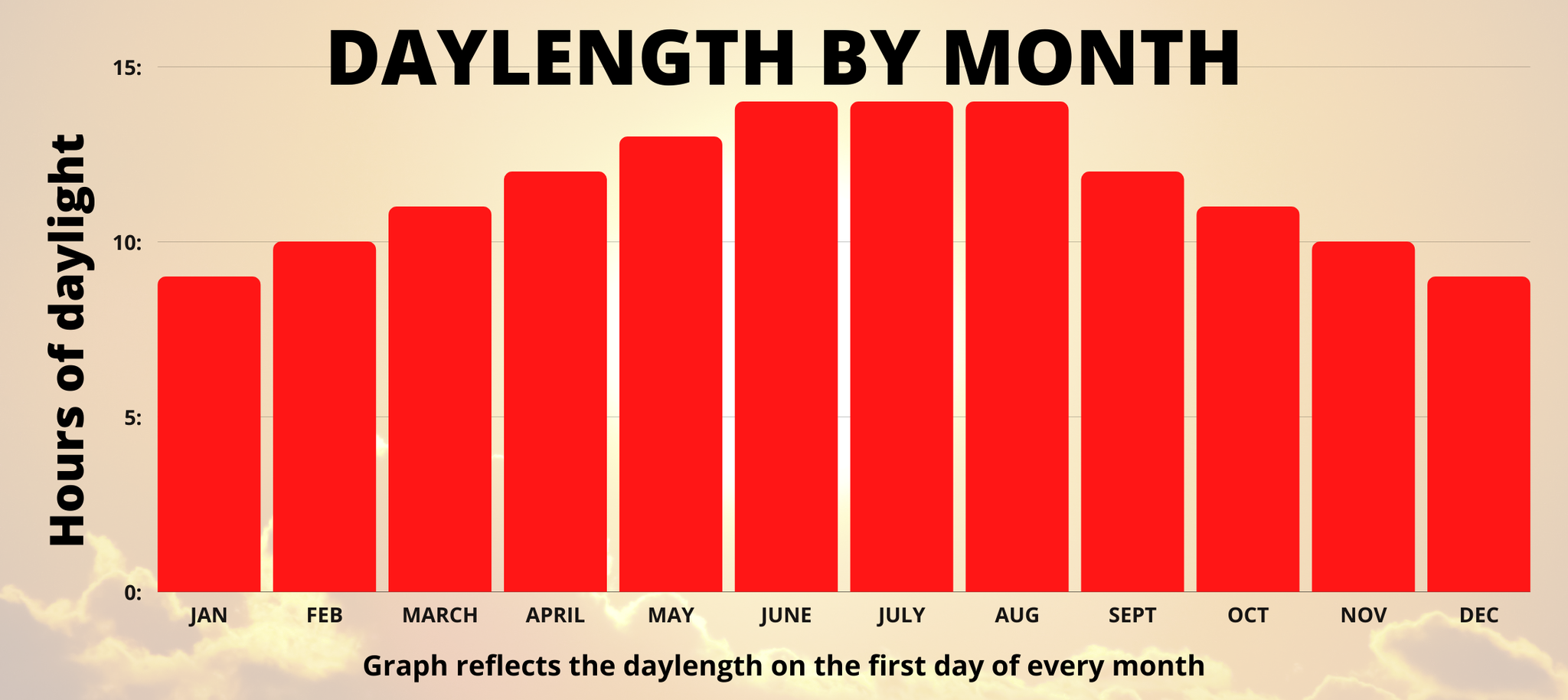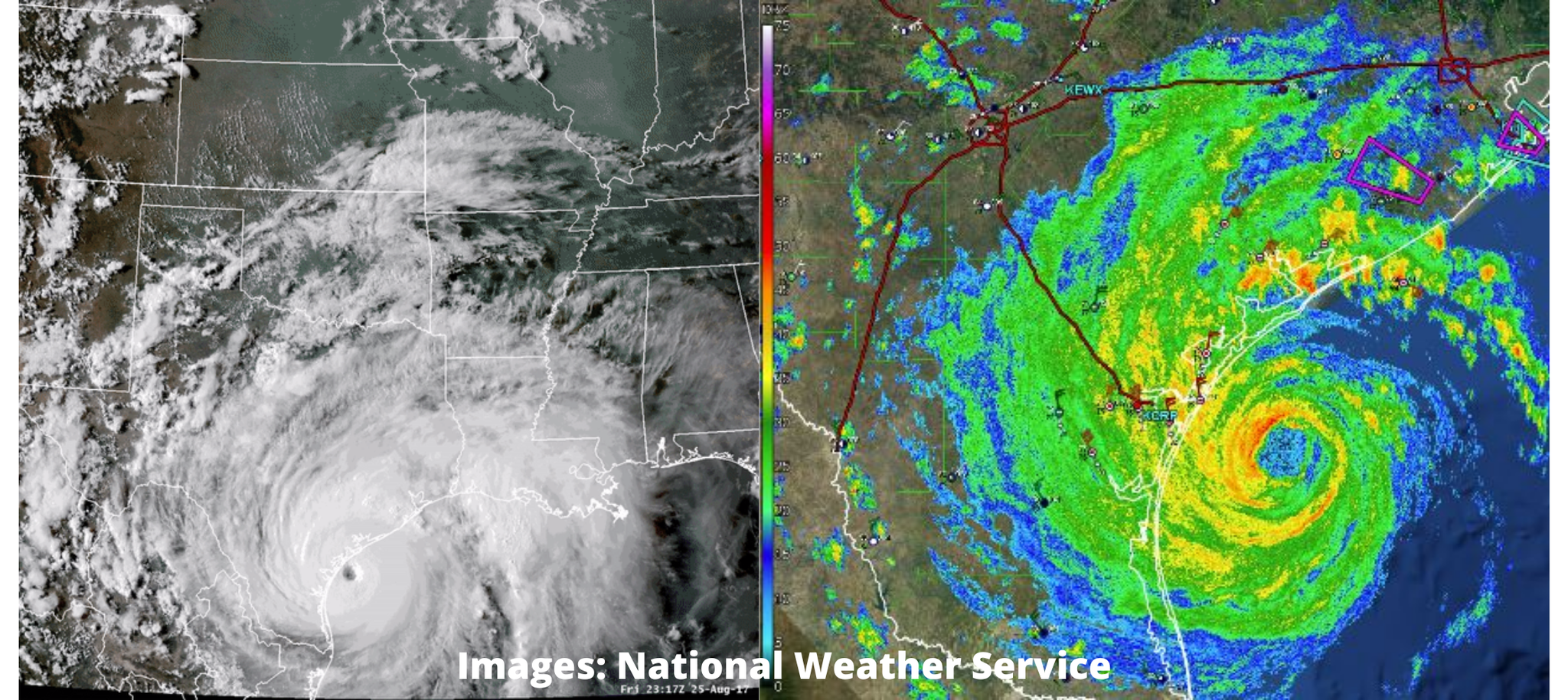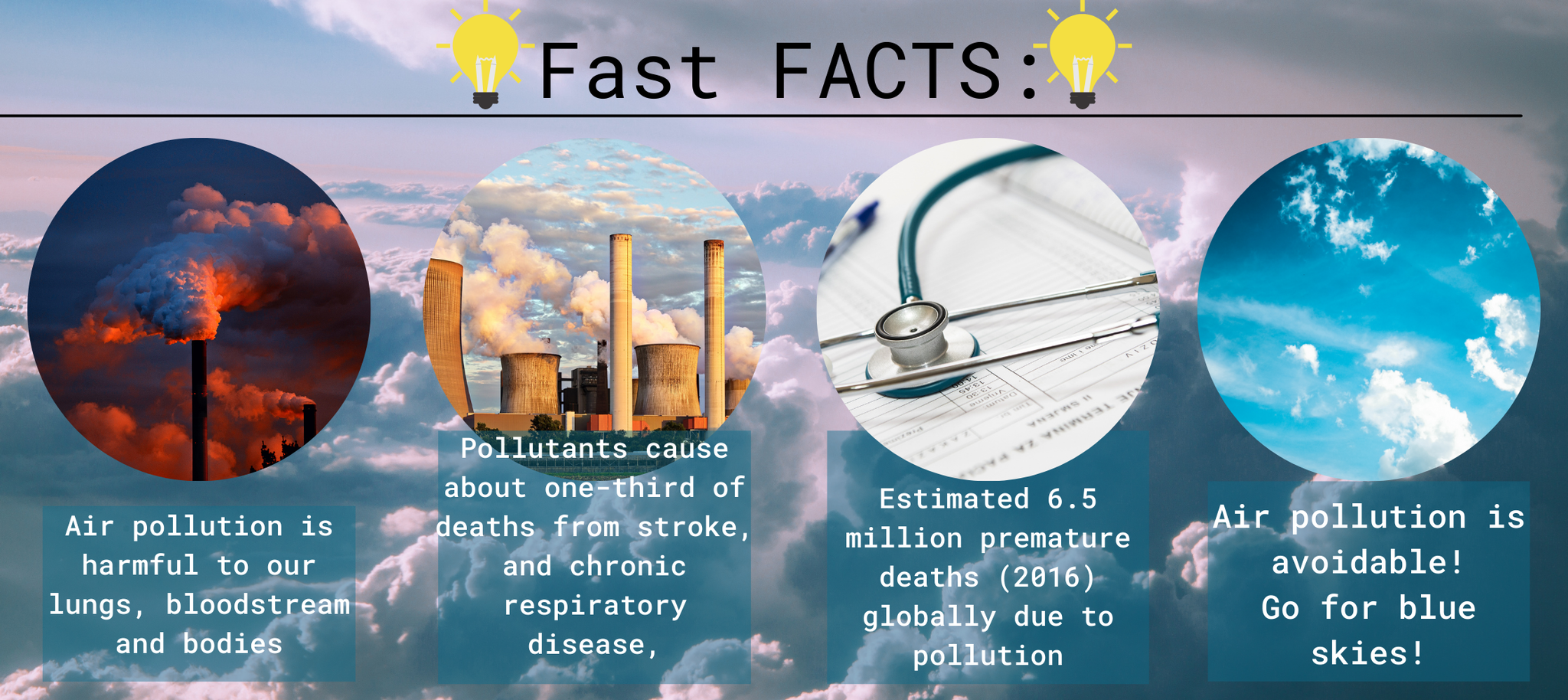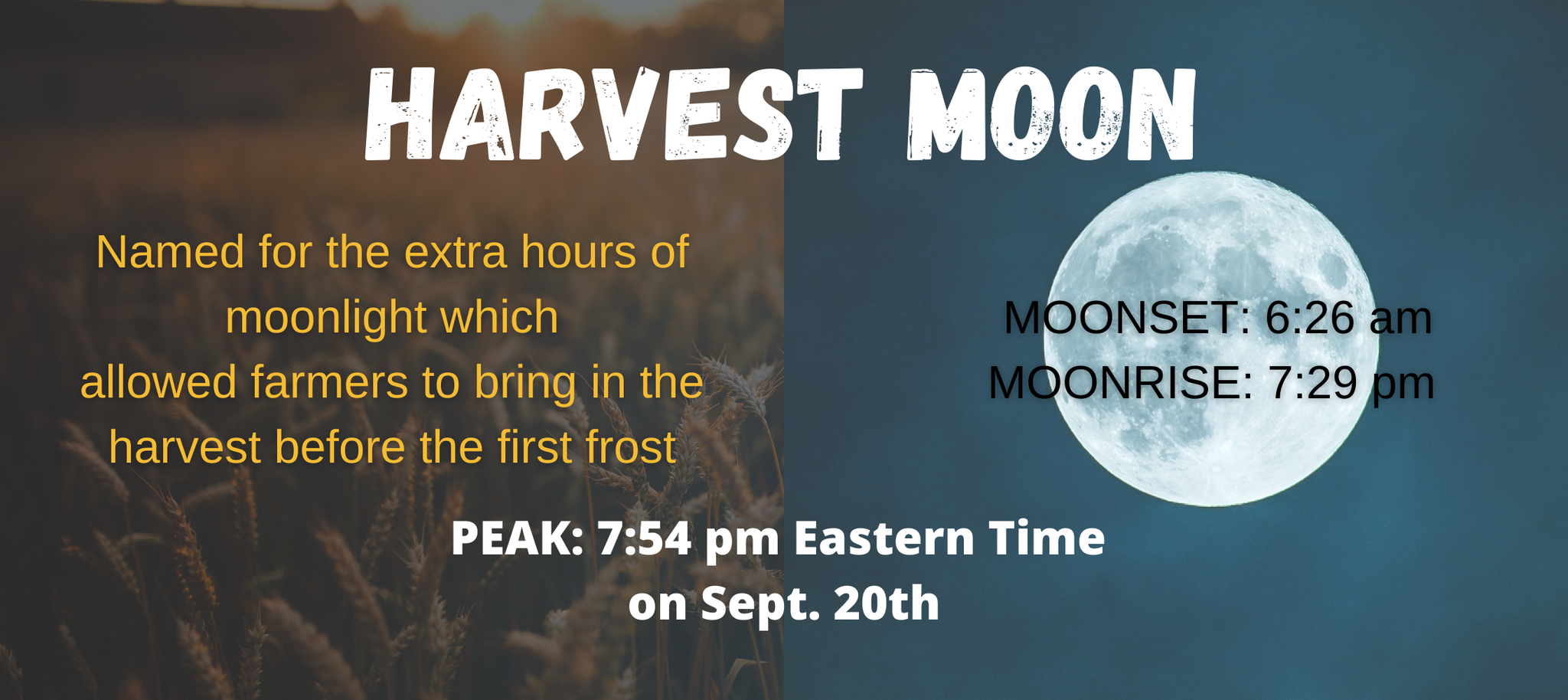Don't forget! Your September weather & events
Some things to remember this month...
September marks the climatological peak of the Atlantic Hurricane season. So far we have seen eight tropical storms and five hurricanes. Two of those hurricanes were major hurricanes. Ida was the most recent major hurricane to make landfall in Louisiana as Category 4 storm.
September is the anniversary of the 1935 Labor Day hurricane, which underwent rapid intensification to become a Category 5 hurricane. The storm was the first Category 5 hurricane on record to hit the U.S.
September 1st

If you need an excuse to start buying pumpkins and drinking Starbucks Pumpkin Spice Lattes, then September 1st is your reason. Meteorological fall begins on the first, which is different from the September 22nd astronomical fall. Meteorologists define seasons based on a grouping of months. Summer, for example, starts June 1st and continues through August 31st. Fall begins September 1st and ends November 31st, etc. Astronomical seasons base their calendar on the Earth’s tilt around the sun.
Think of it like this, meteorological seasons focus on Earth’s weather, primarily temperature when grouping the months. On the other hand, astronomical seasons focus on the happenings in space to determine the month groupings.
Another notable September 1st event, in 1979, Pioneer 11 became the first spacecraft to fly past Saturn.
September 2nd
Anniversary of the 1935 Labor Day Hurricane. The hurricane killed over 400 people upon its landfall in the Florida Keys.
September 3rd

The fourth anniversary of Hurricane Harvey. The Category 4 hurricane made landfall on the San Hose Island of Texas on August 26th. The hurricane made a second landfall on the Texas mainland the same day at Rockport. It was the first major hurricane to make landfall since Wilma in 2005. On September 3rd, the remnants of Harvey were absorbed into another extratropical system and officially died out.
On this same day in 1961, Colorado received their earliest snow on record when 4.2 inches fell.
September 5th
Anniversary of the 1954 heatwave. Temperatures in St. Louis hit 103 degrees which tied the record. Other records included can be found by clicking HERE.
September 7th

International Clean Air Day. This day recognizes the importance of good clean air and brings awareness of pollution, smog, and harmful CO2 levels polluting the air. This year is only the second year celebrating International Clean Air Day. Click HERE for more information.
September 8th
121st anniversary of the devastating Galveston, TX hurricane. The hurricane is considered the greatest weather disaster in the U.S. records. A fifteen feet high storm tide washed inland, demolishing and carrying away buildings. More than 6,000 people died and there were more than $30 million in damages.
September 11th
It’s been three years since Hurricane Florence struck the Carolinas. Florence is known for being the first major hurricane during the 2018 hurricane season. Florence reached Category 4 status with winds upwards of 130 mph. It was the wettest tropical cyclone on record in the Carolines and led to widespread flooding.
September 13th
Libya recorded the World’s hottest temperature in 1922. The temperature soared to 136° F. Let's hope this record is never broken...
September 14th
During an already historic 2020 hurricane season, this date tied the 1971 record for the most named storms to occur at one time. On September 14th, we had Paulette, Rene, Sally, Teddy, and Vicky in the Atlantic.
September 17th
Anniversary of Japan’s most deadly typhoon. The 1829 Siebold Typhoon caused widespread damage across the country. Storm surge off the Ariake Sea killed 10,000 people.
September 20th

The September Full Moon, known as the Harvest Moon, will light up the sky. Native Americans used to look at the September moon as a sign that it was time to bring in the harvest. Because of this, the moon received the nickname, Harvest Moon.
September 22nd
The official start of the fall season. The Autumn Equinox will occur at 2:20 PM Central Time. During the equinox, the Sun passes over Earth’s equator. After this point, Earth will tilt away from the sun, we’ll see less daylight and have longer nights.
September 29th
94th anniversary of the 1927 St. Louis and East St. Louis tornado. This tornado was the 2nd deadliest to hit the St. Louis metro area and is attributed to upwards of 79 deaths and more than 500 injuries. The tornado is estimated to have reached F3 or potential F4 on the old Fujita scale.

0 Comments Add a Comment?